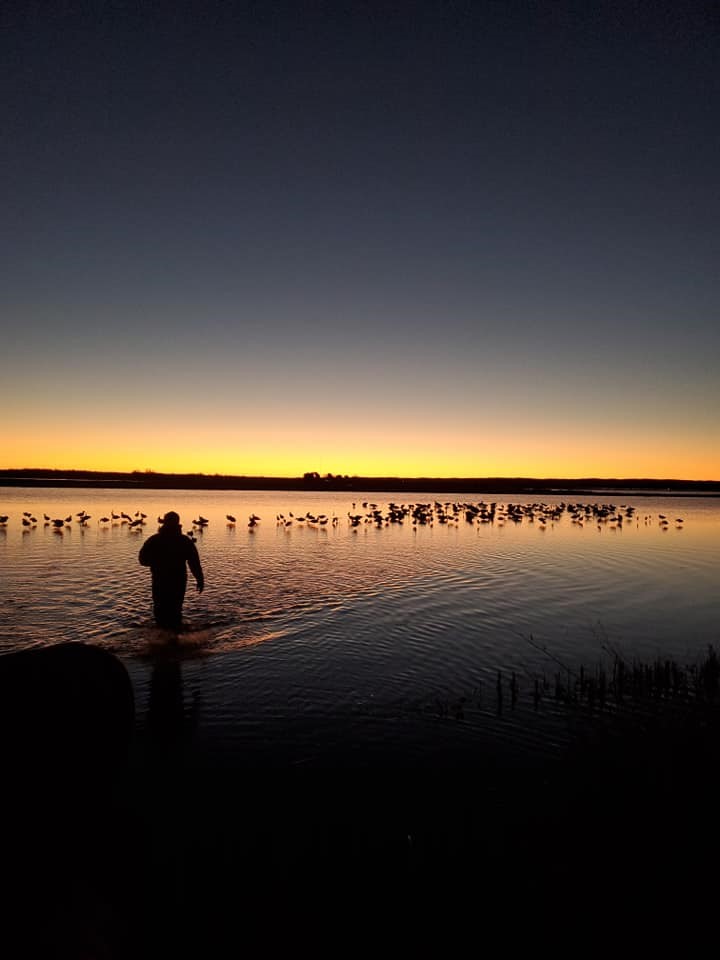Drawdown Aims To Improve Waterfowl Habitat
At French Creek Wildlife Area
This summer DNR staff will be working to improve waterfowl habitat at French Creek Wildlife Area. / Photo Credit: Wisconsin DNR
MADISON, Wis. – The Wisconsin Department of Natural Resources (DNR) today announced that local residents and users of the French Creek Wildlife Area near Portage will soon notice a significant change to the main flowage of the wildlife area due to an existing project aimed at improving prime waterfowl habitat.
This summer, DNR Wildlife Management staff will draw down water levels in the French Creek, which expands into a broad, 900-acre flowage through the property, to expose the creek bed and create mudflats to improve habitat for “puddle” ducks like mallards and teal.
Lower water levels will also allow for some repairs to be made to the dam that controls water flow through French Creek. DNR staff first began the habitat work in May 2022.
“Our goal is to preserve and improve wetland habitat for waterfowl and other wildlife by making seasonal adjustments to water levels in the flowage. These mudflats might look unappealing at first glance, but this is a chance for the French Creek flowage to undergo revitalization,” said Sara Kehrli, DNR Wildlife Biologist. “Going through a drawdown cycle in late spring will create a good spot for this fall’s hunting. Shorebirds also find these mudflats very appealing, so this should also be a good location for birdwatchers to spot various shorebirds.”
Drawdowns projects like this allow soils to settle, anchor floating bog mats and provide great food sources for waterfowl, shorebirds and other wildlife species. Lower water levels resulting from the project will also allow some repairs to be made to the dam controlling water flow through French Creek.
French Creek Wildlife Area is a 3,506-acre property located in Columbia County offering many recreational opportunities including birding, wildlife viewing, fishing, hunting and hiking.
Before becoming a state wildlife area in 1947, the marshland was once devoted to the production of “wire-grass,” a native plant used in the manufacturing of grass rugs and matting and later was subject to grazing and the occasional harvest of wild hay by farmers. Early settlers regularly hunted prairie chicken in the French Creek area. Today the property is primarily managed to focus on waterfowl production and hunting opportunities.
You may also like
-
DNR Seeking Landowners To Host Fall Gun Deer Hunt For Hunters With Disabilities
-
Find Your Next Outdoor Adventure In Wisconsin During Free Fun Weekend, June 7-8
-
Izaak Walton League Property Damaged by Idiots
-
2025 Spring Hearing Statewide Results Now Available
-
DNR Announces Milkweed As 2025 Plant Species Of The Year
